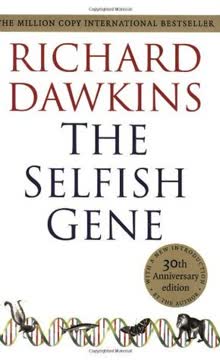Searching...
Top 10 Books on Humane Genetics and Ethics
Explore the 10 most insightful books on humane genetics, ethics, and the intersection of science and society. Perfect for curious minds!
Book Summaries
Dawkins' classic work on gene-centered evolution challenges readers to rethink the role of genetics in behavior, making it essential for discussions on humane genetics.
3 Key Takeaways:
- Genes are the fundamental units of natural selection
- Organisms are survival machines for genes
- Altruism and selfishness are gene-level strategies
Why Violence Has Declined
Pinker’s analysis of violence and morality offers a compelling backdrop for discussions on the ethical implications of genetic research and human behavior.
3 Key Takeaways:
- Violence has declined dramatically throughout human history
- The Leviathan effect: Strong governments reduce violence
- The Civilizing Process: Manners and self-control curb aggression
The Autobiography of a Species in 23 Chapters
Matt Ridley's exploration of the human genome offers insights into our biological heritage, making it a valuable resource for understanding genetic ethics.
3 Key Takeaways:
- Our genome is a book of life, written in digital code
- We share a common ancestor with all living things
- Genes are not just for diseases, but shape our entire biology
A Zoologist's Study of the Human Animal
Morris's zoological perspective on human behavior provides a unique lens for understanding the biological underpinnings of our actions, relevant to humane genetics.
3 Key Takeaways:
- The Naked Ape: A Unique Primate with Carnivorous Adaptations
- Evolution of Human Sexuality: From Primate Roots to Pair-Bonding
- Parental Care and Childhood Development in Humans
Why We Are The Way We Are: The New Science of Evolutionary Psychology
Wright's insights into evolutionary psychology provide a framework for understanding human behavior and morality, essential for discussions on humane genetics.
3 Key Takeaways:
- Evolution shapes our moral instincts, not divine intervention
- Reciprocal altruism and kin selection explain human cooperation
- Sexual strategies differ between men and women due to evolutionary pressures
The Stories in Our Genes
Rutherford's engaging narrative on human genetics provides a fascinating look at our shared ancestry, making it essential for understanding humane genetic concepts.
3 Key Takeaways:
- Human genetics reveals our interconnectedness and shared ancestry
- DNA is not destiny: Genes interact complexly with environment
- Race has no biological basis in genetics
The Powers, Perversions, and Potential of Heredity
Carl Zimmer's exploration of heredity combines history and modern genetics, making it a must-read for those interested in the ethical implications of genetic science.
3 Key Takeaways:
- Heredity is complex and multifaceted, extending beyond simple genetic inheritance
- The history of heredity research is marked by scientific breakthroughs and ethical missteps
- Height and intelligence are influenced by both genes and environment in intricate ways
History, Science, Race and Reality
In this compelling book, Adam Rutherford debunks the pseudoscience behind racial stereotypes, making it essential for understanding humane genetics and ethics.
3 Key Takeaways:
- Race is not a scientifically valid concept
- Skin color is a poor indicator of genetic diversity
- All humans share common ancestors
Human Instincts and the Evolution of Cooperation
Ridley's examination of human cooperation and morality provides a thought-provoking perspective on the ethical implications of genetic research.
3 Key Takeaways:
- Human cooperation stems from evolved social instincts
- Reciprocity drives social behavior and trust
- The prisoner's dilemma reveals the power of cooperation
A Leading Scientist Explores Animal Joy, Sorrow, and Empathy - and Why They Matter
Bekoff's exploration of animal emotions highlights the ethical considerations in genetics and animal welfare, making it a vital read for humane genetic discussions.
3 Key Takeaways:
- Animals experience a wide range of emotions, from joy to grief
- Play behavior in animals demonstrates fairness and cooperation
- Anthropomorphism is a valid tool for understanding animal emotions













